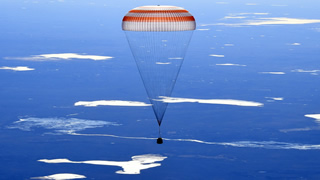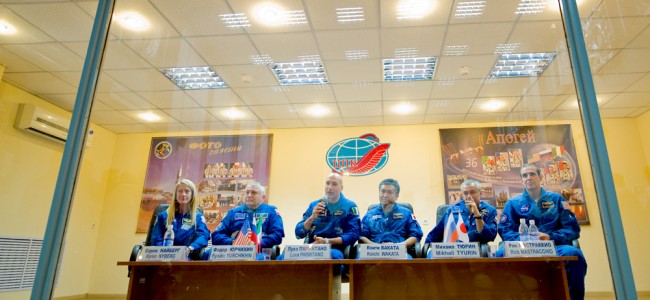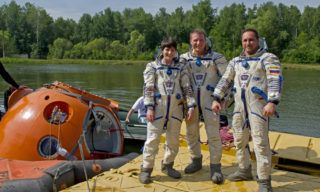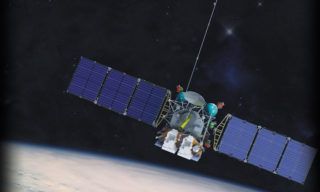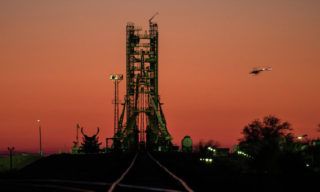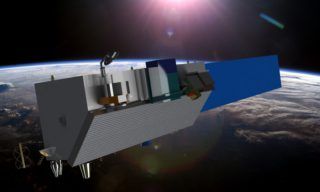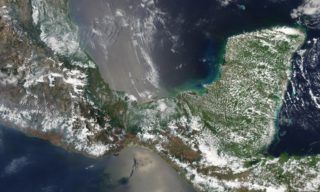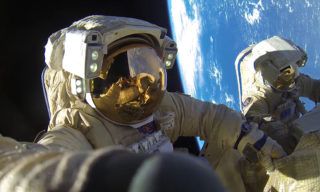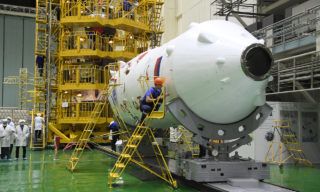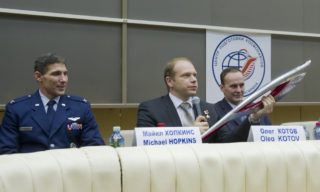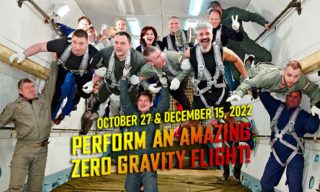Dmitriy Zhukov, GCTC press-service chief: Good evening! Let’s start the ball rolling. According to ISS flight program Soyuz TMA-09M spacecraft with 36/37 ISS mission crew onboard will be launched from Baikonur cosmodrome at night from May 28 to May 29, 2013. An hour ago State Commission approved primary and back-up crews as follows. Primary crew: Fyodor Yurchikhin – Soyuz TMA-M commander, ISS-36 flight engineer, ISS-37 commander, Roscosmos, Russia; Luca Parmitano – Soyuz TMA-M flight engineer, ISS flight engineer, ESA, Italy; Caren Nyberg – Soyuz TMA-M second flight engineer, ISS flight engineer, NASA, USA. Back-up crew: Mikhail Tyurin – Soyuz TMA-M commander, ISS flight engineer, Roscosmos, Russia; Rick Mastracchio – Soyuz TMA-M flight engineer, ISS flight engineer, NASA, USA; Koichi Wakata – Soyuz TMA-M second flight engineer, ISS flight engineer, JAXA, Japan. The crews are ready to answer your questions.
Ilya Isaev, Roscosmos television: My question is to the primary crew. We know that your flight will take only6 hours instead of traditional 2 days. We also know that the crew liked the idea of short rendezvous scheme. What does it mean for you? How did it influence your trainings?
Fyodor Yurchikhin, Soyuz TMA-09M commander: I’d say that this scheme has already become traditional. Pavel Vinogradov tested it in his previous flight, the crew successfully reached the ISS. Our chances to fly to ISS according to this scheme were less than those of Vinogradov crew. We took a time-out to analyze everything and made a decision to fly according to short scheme. We have been discussing that with our authorities for quite a long time and they supported us. We are very grateful that they approved this scheme for our flight. The decision was made several weeks after Pavel Vinogradov’s spaceship had docked to ISS. We need time to analyze “short” docking. The emblem developed by us for our crew reflects this scheme. I am very grateful to my crew who supported in this decision. It didn’t so much impact on our trainings as the main blocks remained the same. Naturally there are some peculiarities and we have to practice it with our instructors.
Rob Nevius, NASA TV: Two questions to Karen Nyberg. After long preparation trainings in GCTC you are going to leave the Earth for half a year. What are you going to do onboard the ISS? Will you miss your family and how will you get in touch with them from space?
Karen Nyberg, Soyuz TMA-09M second flight engineer: I am so excited about the fact that tomorrow we will be already in space. In comparison with my shuttle flight, when everything seemed dynamic to me, this flight will take more time as it will last for about half a year. And now I’ll have more time to experience the life and work onboard the ISS. Naturally, I’ll miss my family during the flight.
Rob Nevius, NASA TV: Next question is also to Karen Nyberg. During the mission you’ll meet many space vehicles and commercial one among them. Could you tell about the peculiarities of this program implementation?
Karen Nyberg: We have a lot of work to do in regards of meeting spacecrafts indeed. It requires attention and concentration, we have to be always ready to off-nominal situations. That’s why it is very important for us to have a rest after hard working day (smiles).
ESA representative: Question to Luca Parmitano. Since you’ve been in cosmonaut corps you are known as a cheerful person. Reveal us your secret how do you manage that?
Luca Parmitano, Soyuz Tma-09M flight engineer: Many people ask me about that and I always say: “If you love your work, love what you are doing it is not difficult to be cheerful. I am very happy to be here!”
ESA representative: What are you going to take with you to the orbit that will remind you about home?
Luca Parmitano: You know we have not so much space in the spacecraft, but nevertheless we may take with us a small quantity of personal belongings – up to 1,5 kg. I took some souvenirs, several chevrons that I will bring back and present to my friends. A also take photos of my family. My daughters painted two wonderful pictures with their names, I will take them either.
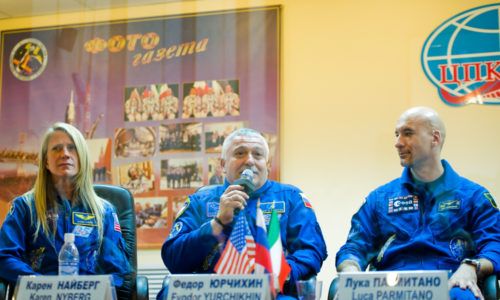
Mass Media representative: First of all I’d like to wish you successful flight and nominal operation. On May 25 the schools celebrate so called Farewell Bell. What would you like to wish to the pupils entering the life?
Fyodor Yurchikhin: Thank you for the question. Just before my 3rd flight my daughter had her Farewell Bell. That time she could’ come to Baikonur to see me off, as she had to pass exams. Now she is present here. I’d like to with the children first of all good luck in their final exams. And I also with them to set high goals, never fear it and always remember that our fate is in our own hands.
Mass media representative: Question to Karen Nyberg. What will be the most difficult for you as the mother on the orbit.
Karen Nyberg: It is a very difficult question. We all have children and they mean a lot to us. It is very difficult for any person to part with the family for a long period of time. As you know my son is 3 years old, when I came back he will grow up a little. I hope to get in touch with him via visual communication. communication sessions are a great opportunity to chat with the family for me and my colleagues.
Fyodor Yurchikhin: I’d like to add. It is always very difficult to leave the family for such a long time. When I got ready for my first flight my little daughter Lena wasn’t even 1 year old. And when someone asked her: “Where is your daddy?”, she showed to the TV set with your hand and called me stranger( smiles).
Mass media representative: Question to Karen. What things will you take with you to remind you of your son?
Karen Nyberg: I take 2 his small favorite toys and, of course, lots of photos.
Mass media representative: In your opinion how he will take such long work away from home?
Karen Nyberg: Sometimes my son seems to understand that I leave for a long period. But as he is only 3 I believe he scarcely realizes that. On the other hand he knows that I fly to ISS and Zero-g there. It will be interesting for him to watch the videos how his mother “flies” onboard the ISS and how other things fly around her.
ESA representative: Question to Luca Parmitano. You are one if ESA young astronauts, young people came to Baikonur to support you. What do you feel?
Luca Parmitano: I’d like to thank everyone who came to support me. I was very surprised and didn’t understand for the first time where so many people wearing ESA T-shirts came from. It is so cool! Thank you for your support!
I am filled with different emotions; I am in the expectation of tomorrow flight. I understand all the responsibility I bear. I am also sure in my training and I hope that everything will be all right.
“Russia Today” Representative: My question is to all members of primary crew. We know Baikonur is a very important place for all cosmonauts. I’d like to ask what does it mean to you?
Fyodor Yurchikhin: Baikonur is connected with 2 remarkable dates: October 4, 1957 when the first Earth satellite was launched, and April 12, 1961 – human’s first ever space flight. Being here I feel proud, that our spacecraft will be launched from the very place of such important event – human fled to space for the first time.
Luca Parmitano: For me the places are always related to memories. Being a member of back-up crew I was here for the first time 6 months ago. And it was very cold here – about 30 degrees below zero and as I am an Italian a felt terribly cold (smiles).
Karen Nyberg: It is a place of history with many years of traditions. And I also feel proud that I have a chance to touch this history.
“Russia Today” Representative: Question to Karen. What do you expect from your flight to ISS?
Karen Nyberg: This time we will have a lot of work. In my spare time I’d like to do lots of things that will remind me about the flight.
Question from the audience: Aren’t you afraid of flying to space?
Fyodor Yurchikhin: We are afraid!
Alexey Peslyak, RIA-Novosti: First of all I’d like to congratulate you on your flight and wish you good luck. I have 2 questions. The first one is to Luca Parmitano. During your flight there is an extensive program planned to be carried out. What experiment do you find the most interesting? The second one is to Fyodor Yurchikhin: during your flight there are several extravehicular activities planned according to Russian program. How many? When will the first be? What operations will be performed in the process of EVA?
Luca Parmitano: I’d try to answer in Russian. There are more than 150 experiments carried out onboard the ISS. It’s difficult to tell about all of them. Our mission will start some interesting experiments, for example “Green Air”. It is an Italian experiment aimed at exploring biofuel. The essence of the experiment is to find combinations of fuels that won’t pollute the environment. And one more interesting medical experiment in the framework of which we will explore human’s back with the help of special equipment. Till now large-size equipment was needed for such experiments. And the third one is connected with a special diet, aimed at prevention of calcium loss during the flight but as little medicines as possible should be used at that. This experiment is of great importance as not only cosmonauts onboard the ISS suffer calcium loss but people on the Earth either.
Fyodor Yurchikhin: As for extravehicular activities in accordance with Russian program our mission is to perform 4 extravehicular activities; I will take part in 3 of them. The first activity is planned for mid-June and is concerned with functional cargo block temperature control system repairmen. It will take place in June. We will probably remove “Endurance” experiment platform from ISS outer surface. Other two activities are riled to electric cable installation for new Russian MLM module. Besides we will carry out work concerned with scientific program.
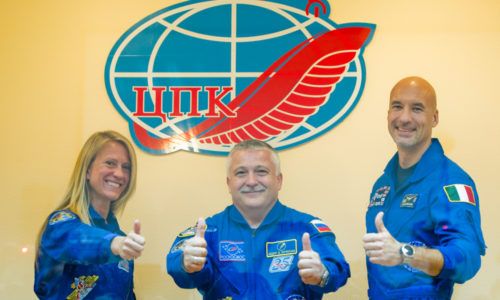
Rob Nevius, NASA TV: My question is dedicated to work with the Olympic flame. What does it mean to you?
Rick Mastracchio: The Olympic games are the main sport competitions uniting all world countries. ISS is also an example of international cooperation. And this is a great idea that the cosmonauts take part in the Olympic flame relay.
Mass media representative: Good afternoon! First of all we’d like to wish you successful flight and implementation of the program. The first 20 years since profession of the cosmonaut appeared people left it quite early, like the sportsmen. At the present moment age limit for this profession increased. Do you believe it is due to medical science development or spaceflights seem not so dangerous now? Thank you.
Fyodor Yurchikhin: The beginning of space era was a difficult stage, everything was for the first time. The experiments of those days seem much simpler as compared to those of our time. Medical specialists have gained great experience to be able to predict the behavior of human body in space. For example Pavel Vladimirovich Vinogradov who is on the orbit now will celebrate there his 60th Birthday. American astronaut John Glenn fled to space for the second time when he was 77. Mikhail (Tyurin) and I are still young. Luca (parmitano0 – is just a little boy. Thank you for the question.
Dmitriy Zhukov: Dear colleagues, thank you for your questions.
Based on materials of GCTC press-service
Image credit – GCTC

